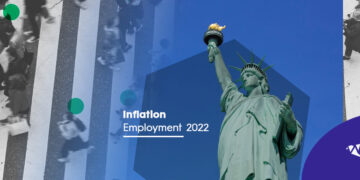With the US economy in a state of upheaval owing to a tight labor market, an oncoming recession, rising inflation, and global uncertainty, many CEOs and business leaders are concerned about what the future may hold.
On the other hand, some company executives are rather optimistic about the future of the worldwide economy in 2023.
In this blog post, we’ll address these differences of opinion on the current state of the US and the global economy. Also, we’ll explain to you how you can be prepared to face economic adversities in 2023.
CEOs Have Different Opinions on the Current State of the Economy
There are many issues on which CEOs and business leaders disagree about the state of the current economy in the US and around the world. The first issue is whether or not recession will emerge both in the US and globally.
While some people in positions of influence think that recession is just around the corner, others believe that the US is only experiencing a period of slow growth.
For example, according to a recent survey by The Conference Board, 60% of CEOs and executives said that they expect the economy to contract in 2023. As a result, they’re preparing for possible adverse situations that could affect their businesses.
Furthermore, business strategists from JP Morgan said they expected an 85% chance of recession.
Instead of a recession, some corporations believe the US is simply seeing slow economic growth. For example, Cushman & Wakefield executives said that the US labor markets are still going strong, so there is no chance of an economic downfall.
To deepen the topic, you can watch the following video.
It seems there are reasons to be optimistic. However, firms must take action to deal with a slowing economic climate.
How Can Small Businesses Be Prepared to Face Changes in the Economy in 2023?
As we move into 2023, the US economy is forecast to enter a period of slower growth.
A recession is still conceivable, but it isn’t certain. Even if a recession does not materialize, GDP growth is expected to slow down from the robust pace seen in recent years.
Inflation will likely rise as the job market tightens, even though more job positions are proliferating in several US states. These conditions will present challenges for businesses of all sizes. Consequently, small businesses should be prepared for payroll increases due to inflation.
Preparing for a potential economic slowdown should be a key priority for businesses in 2023. Many companies will need to reassess their cost structures and adapt their strategies for a more challenging operating environment.
Flexibility and agility will be essential for navigating these changes successfully. Businesses anticipating and adapting to the changing economy will be well-positioned to continue growing in the years ahead.
Finally, outsourcing remote work can benefit your business amid economic adversities. One of the benefits of outsourcing remote workers is that businesses can maintain a flexible workforce that can accommodate changes in the economy.
In times of economic turmoil, businesses may need to downsize their workforce quickly, and outsourcing remote workers allows a business to do so without having to lay off employees.
Additionally, by outsourcing remote workers, a business can reduce its overhead costs, which can be beneficial in times of impending recession in the US. Also, by outsourcing recruiting, you can access a diverse and highly-qualified talent pool.
So, what are you waiting for?
Takeaway
CEOs have differing opinions on the state of the economy. Although it’s impossible to predict what will happen in 2023, it’s important for small businesses to be proactive in their planning and understand that changes will occur.
What are you doing to ensure your small business is recession or slow-economic growth-proof?
Our company is a full-service staffing agency specializes in outsourcing remote employees based in Mexico. A business model designed for US companies.














